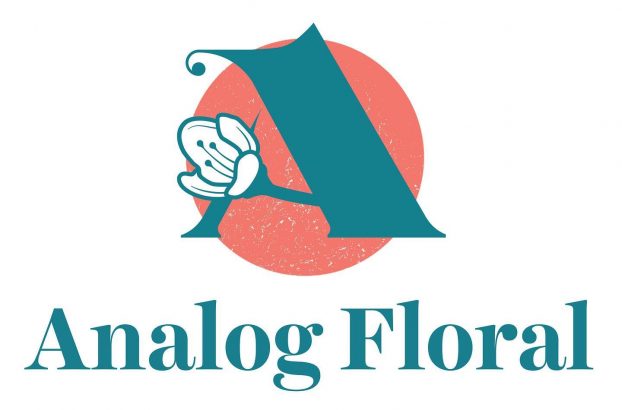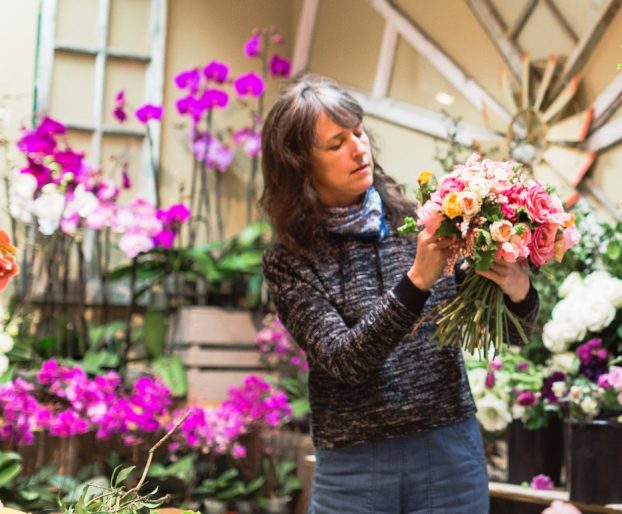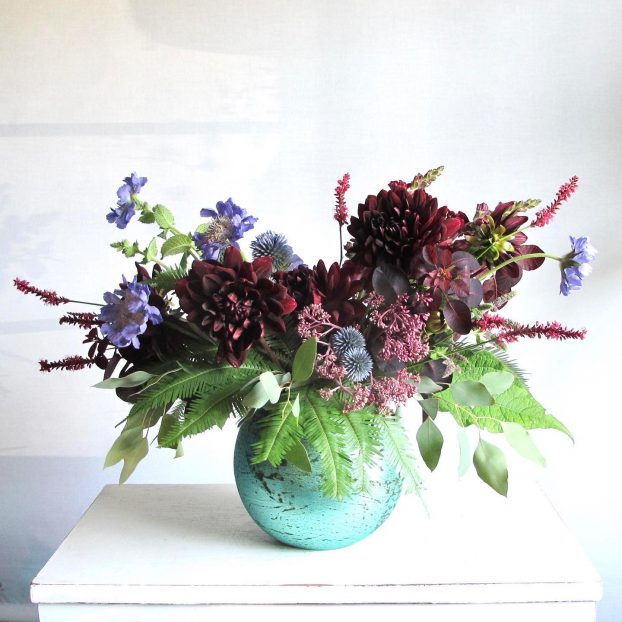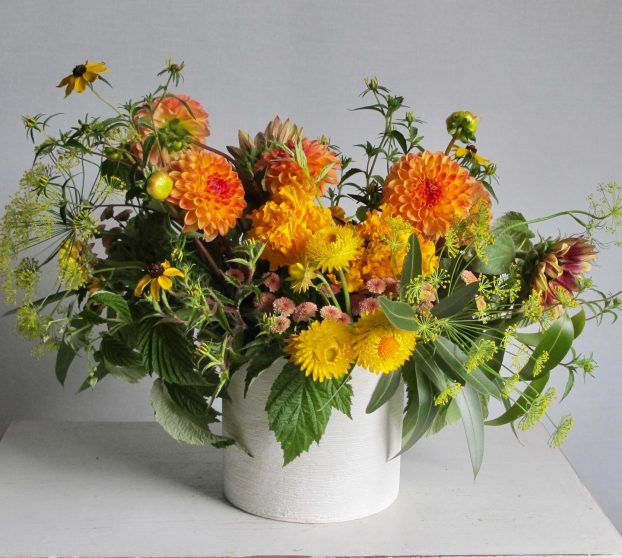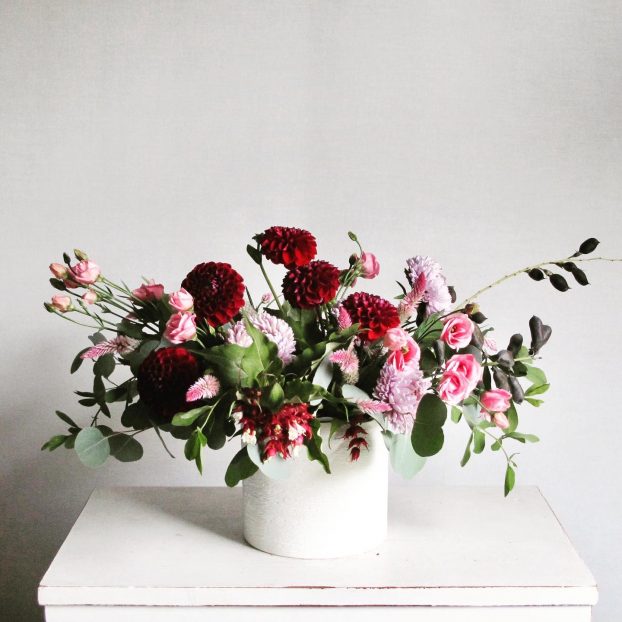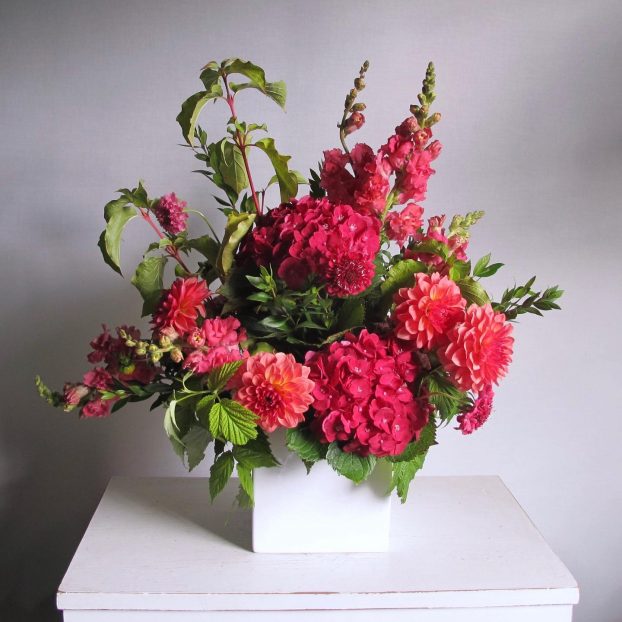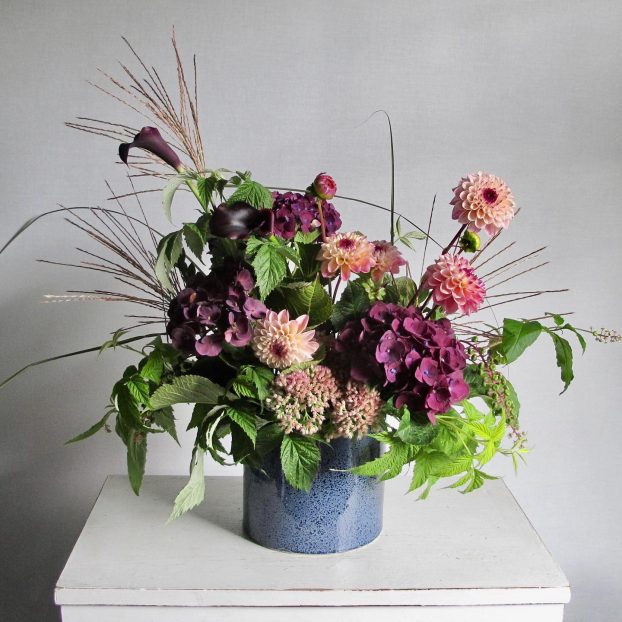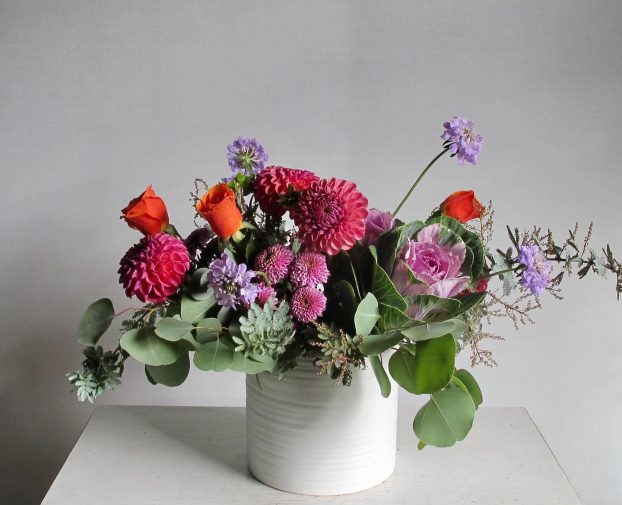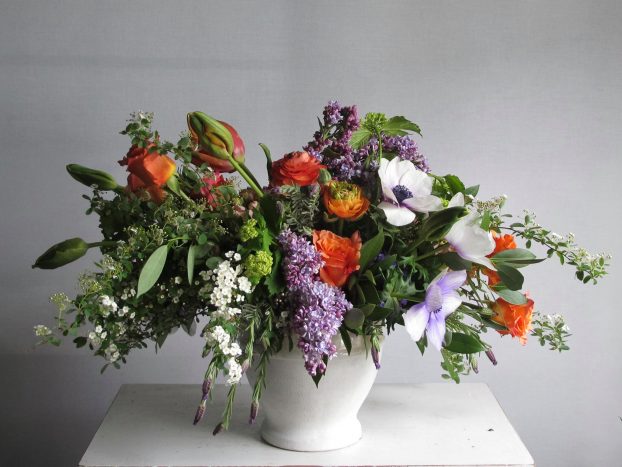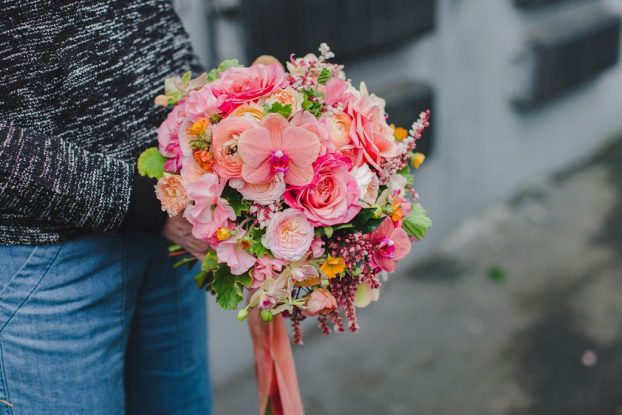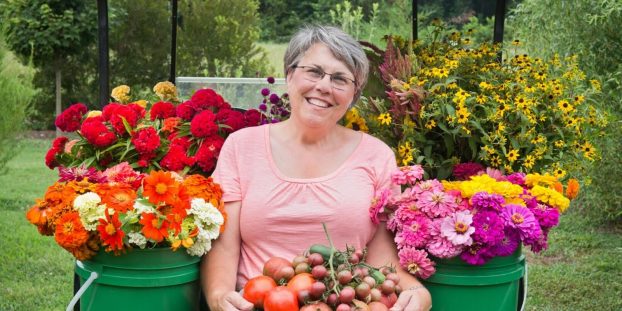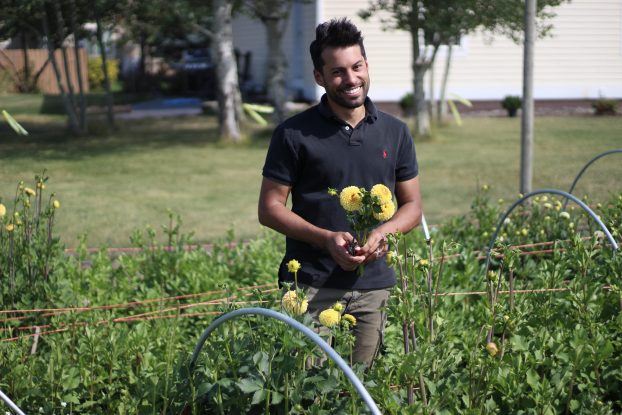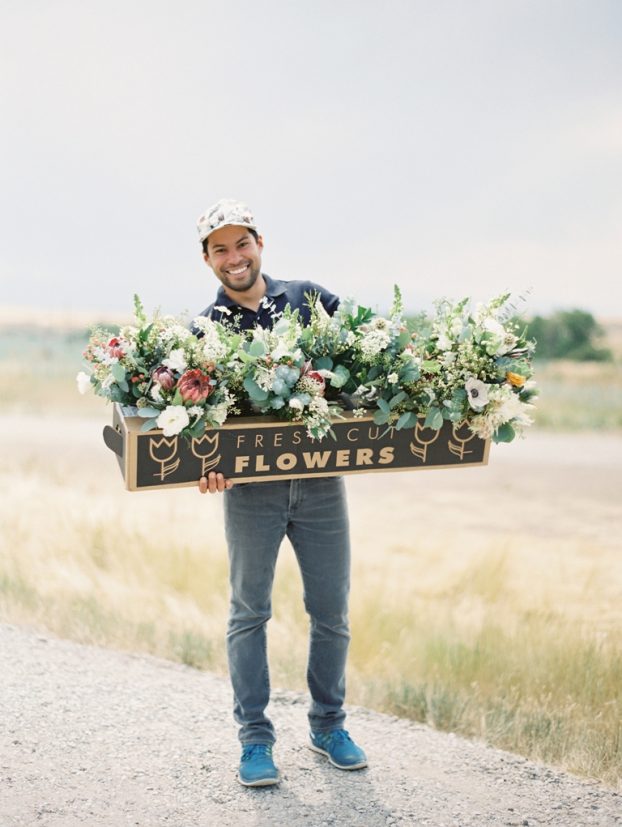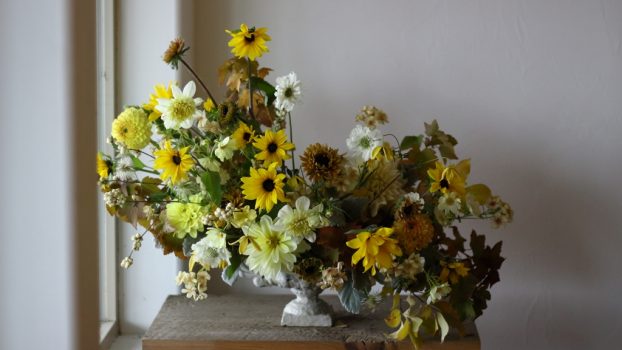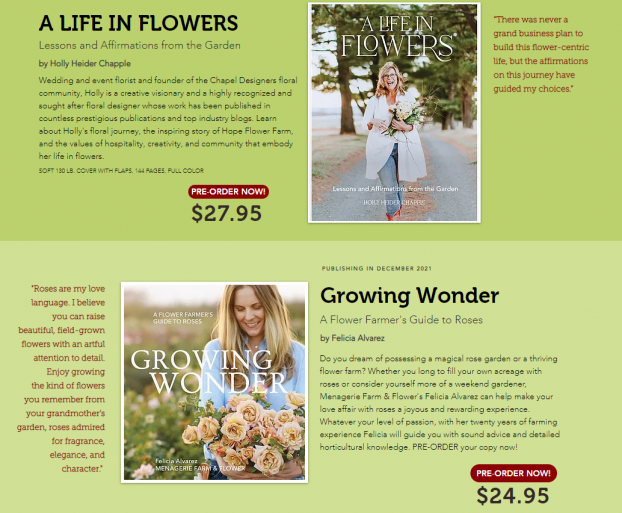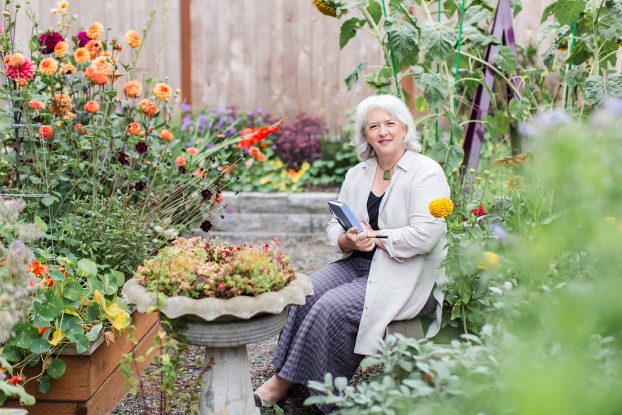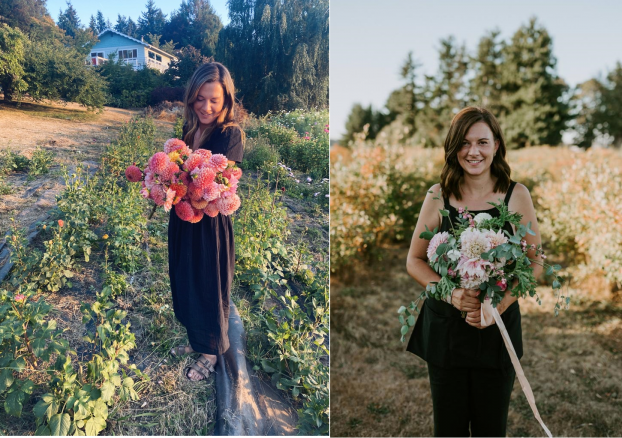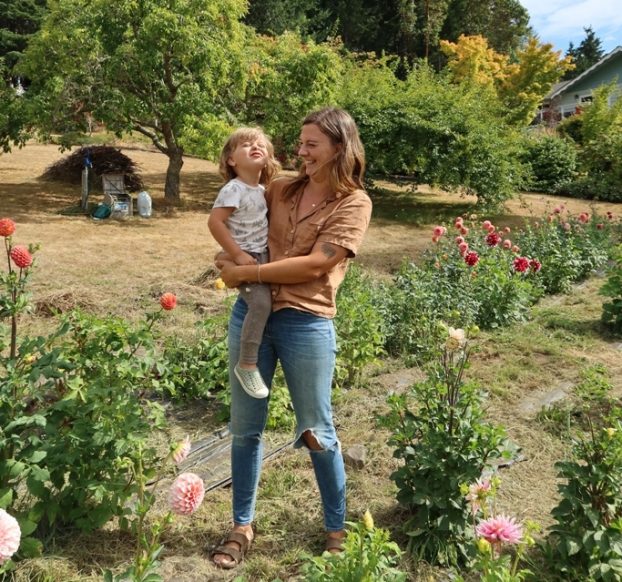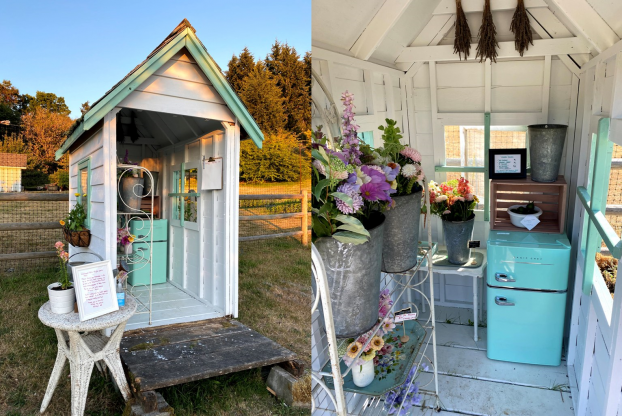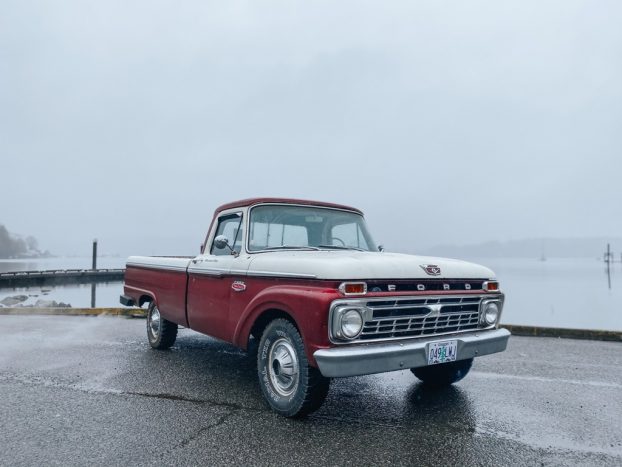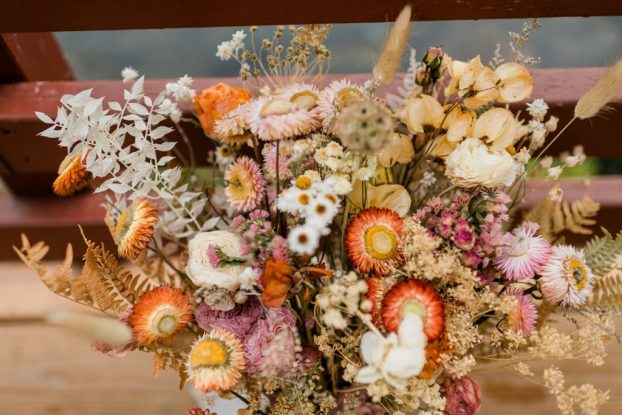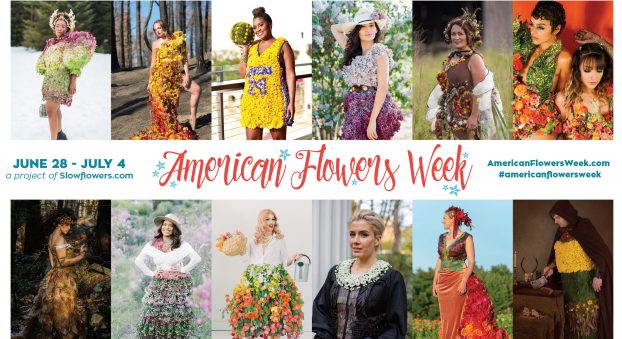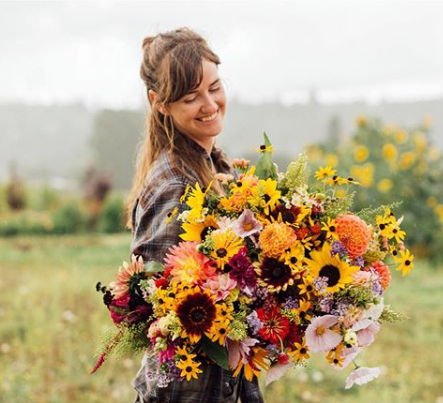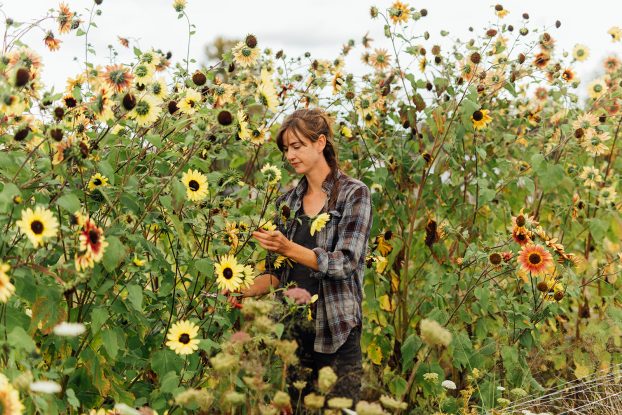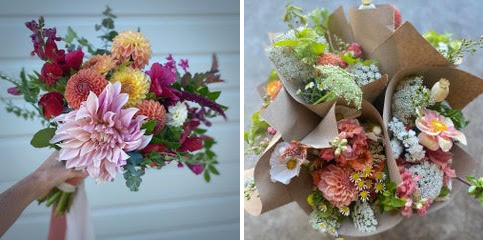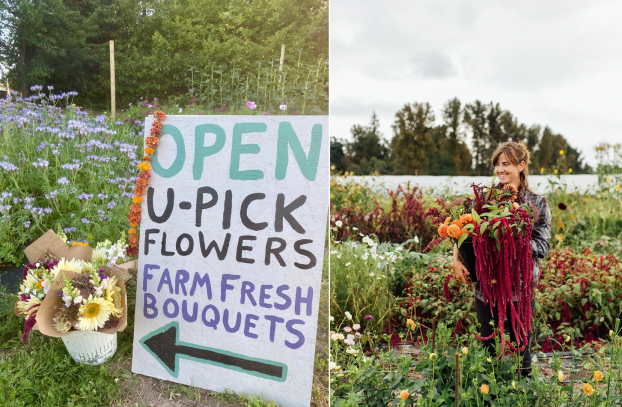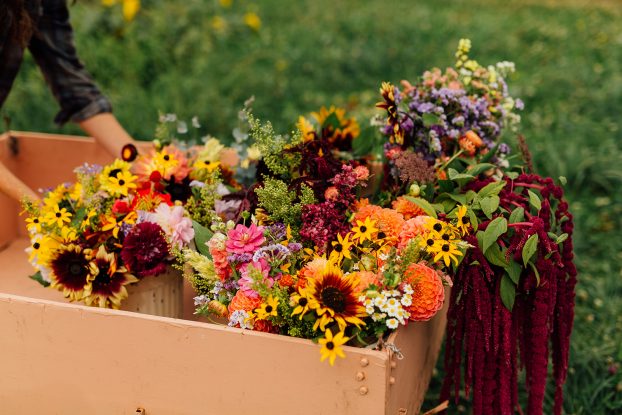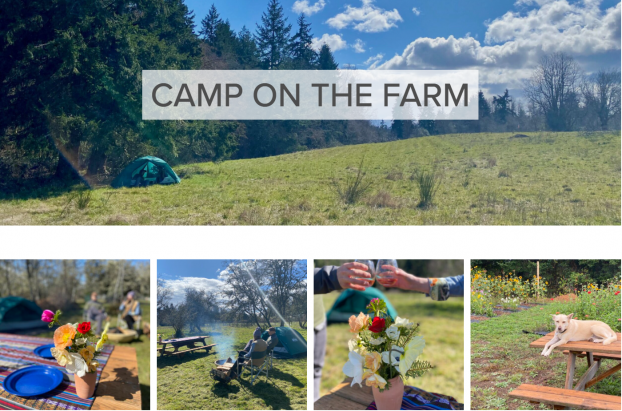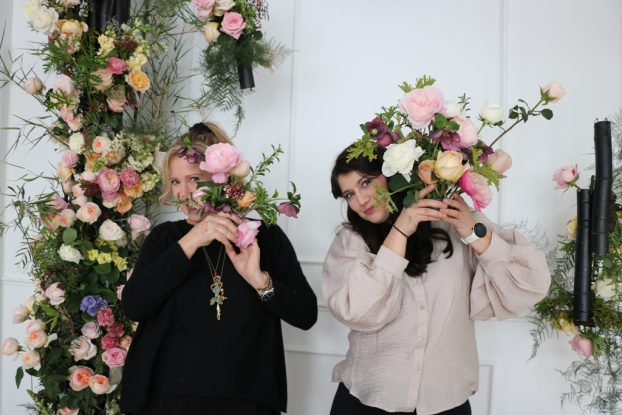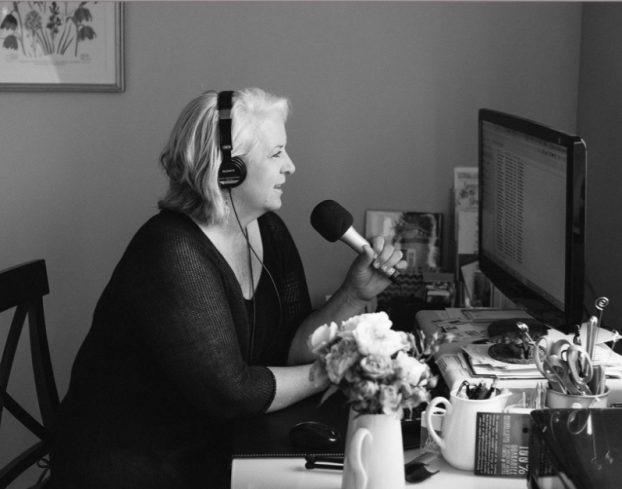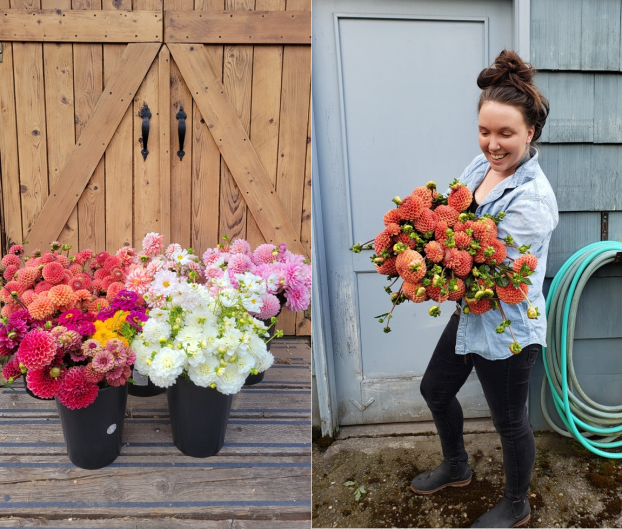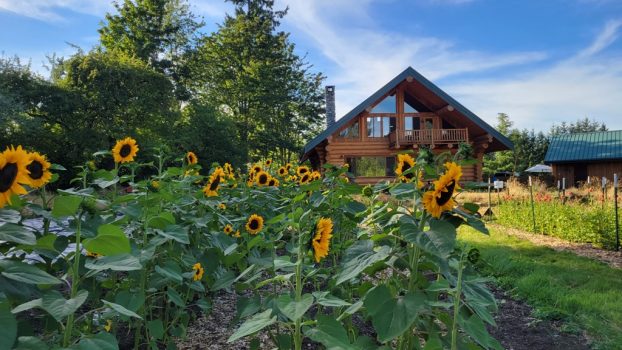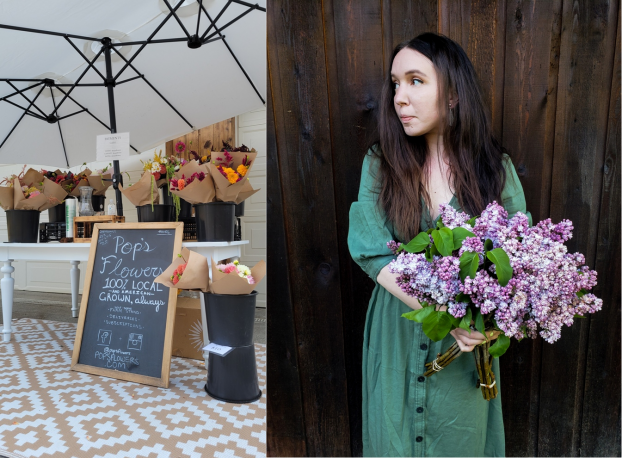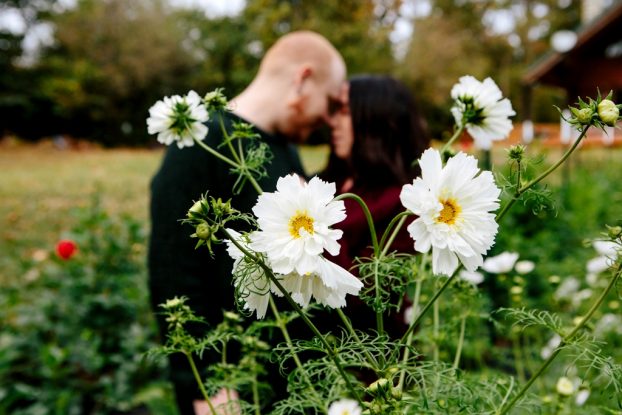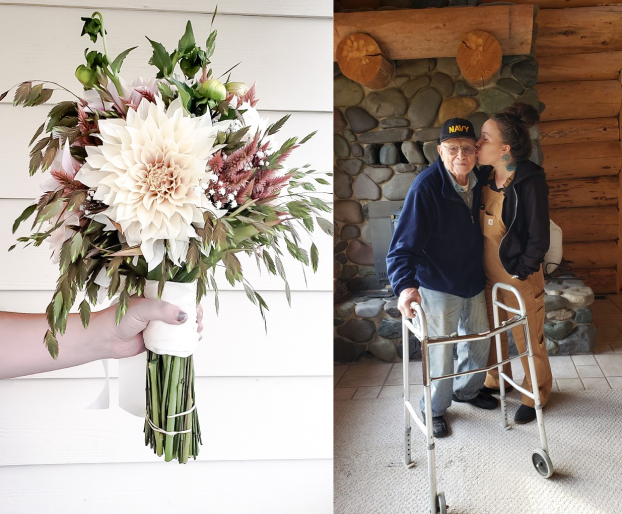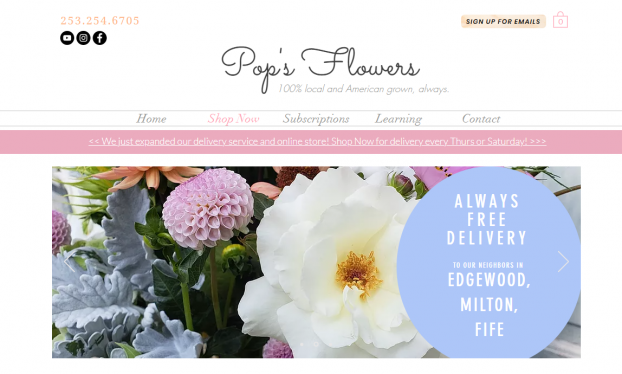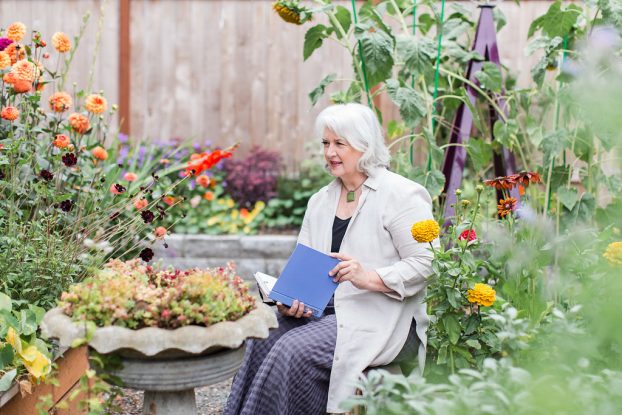Podcast: Play in new window | Download
Subscribe: Apple Podcasts | Podcast Index | RSS | More
For our final week of October’s Member Appreciation Month, I recorded a terrific interview with longtime Premium member Libby Francis-Baxter, owner of The Modest Florist in Baltimore, Maryland. Libby is one of those constant IG presences in our lives, tagging Slow Flowers Society in her everyday floral posts that show the beautiful arrangements heading out the door of her neighborhood retail flower shop. She’s living her values through and through — and I really wanted to share Libby’s story with you.
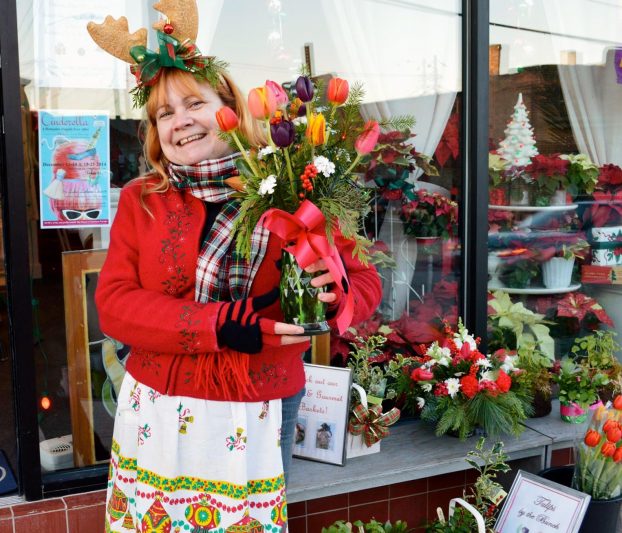
Here’s a bit more about Libby and her cute shop:
Libby Francis-Baxter is known for supplying her community with locally-grown flowers, greens and live plants presented in vintage, reusable and biodegradable containers. Founded in 2013, The Modest Florist was created with sustainability at its core and is committed to environmentally-friendly solutions for the modern floral business. As the hometown florist in Baltimore’s Hampden neighborhood, it’s a source for a full range of floral services with a modern twist! The Modest Florist is the first florist to be recognized by and listed on the Maryland Department of Energy “Green Registry” and the owner is a LEED Green Associate.
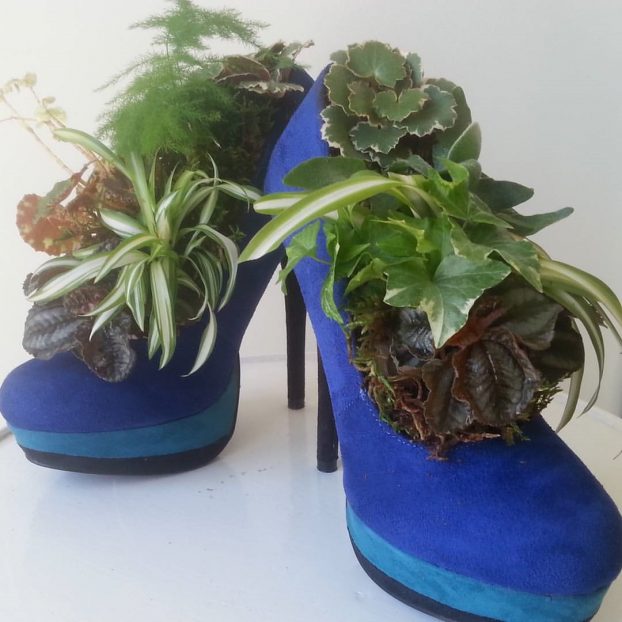
You’ll also want to check out a few bonus resources, including a recent Q&A with Libby published in Voyage Baltimore
and a feature I wrote about The Modest Florist that appeared in the December 2018 issue of Florists’ Review, for our Slow Flowers Jounal “How I Do It” column — an ongoing feature sharing retail florists’ advice on sourcing locally.
Download the article here
Last week, Libby and I recorded a video interview and you can watch the full episode, including a short, fun video that Libby’s husband took on her farmers’ market shopping excursion. Find that in today’s show notes, too!
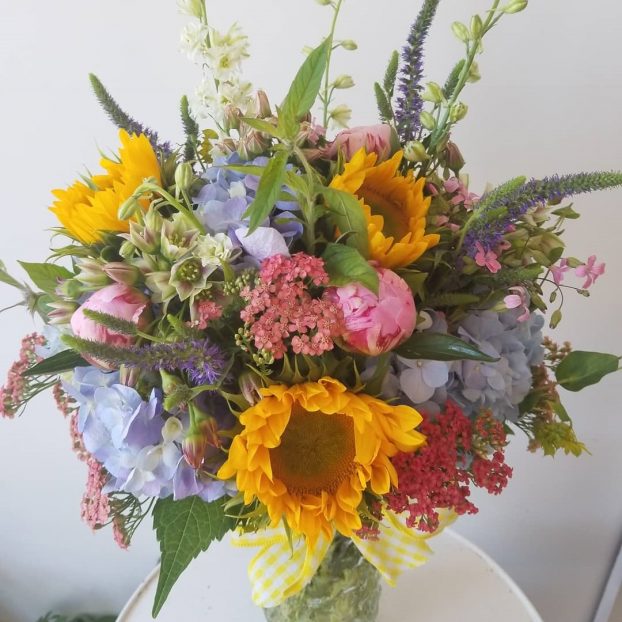
After we recorded our conversation, Libby and I kept corresponding and I wanted to share portions of an email she sent me:
“The pandemic and the current, on-going supply chain issues have highlighted the importance of local sourcing. When the nation went into lockdown in March of 2020, the floral wholesalers shut down. Conventional florists found themselves without the ability to get flowers from South America and other far off places. Supplies like glassware from China have nearly dried up. Many of our area florists shut down; some for good.
“My experience was exactly the opposite! I shut my door to the public and pivoted to contact-free delivery. I never missed a beat on having flower inventory as I was able to rely on my local greenhouse growers and field flower farmers to do COVID safe pickups. My community knows that I love reused vases. So many folks were stuck at home and cleaning out their kitchen cabinets that I have gotten more vases left outside the shop than ever before!
“I wanted to share my experience as a way to encourage florists to consider a more sustainable business model. As far as I know, I’m the only full-service retail flower shop on the east coast to source only local flowers and plants all year ’round. It’s a challenge and more work but I believe our world needs folks to put planet before profit.
Libby Francis-Baxter, The Modest Florist
Bonus Interview: Ellen Frost, Local Color Flowers
On this topic, I want to share a bonus interview I also recently recorded with Ellen Frost of Local Color Flowers. Ellen is a past guest of this podcast, so she will be familiar with you. In keeping with the theme of my interview with Libby, I asked Ellen to talk about her upcoming online course offered through The Gardener’s Workshop. If you think this workshop has your name on it, vheck out the details for Ellen’s course, Growing Your Business with Local Flower Sourcing. The fee is $495, with registration taking place between November 5-9th. That’s coming right up! and the course begins January 3, 2022.
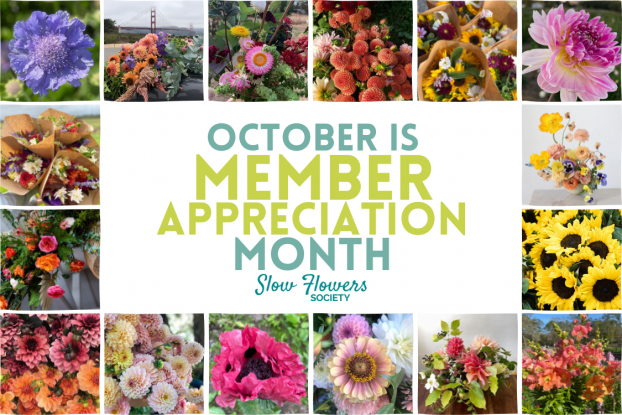
We have just wrapped up October, our very successful Member Appreciation Month. The month focused on thanking you, our core community of motivated and mission-driven flower growers, designers, enthusiasts and pioneers in the Slow Flowers Movement.
There’s so much you can look forward to during the month of November, so if you haven’t opened up your Slow Flowers November newsletter, check it out here!
Thank you to our Sponsors!
This show is brought to you by Slowflowers.com, the free, online directory to more than 880 florists, shops, and studios who design with local, seasonal and sustainable flowers and to the farms that grow those blooms. It’s the conscious choice for buying and sending flowers.
Thank you to our lead sponsor for 2021, Farmgirl Flowers. Farmgirl Flowers delivers iconic burlap-wrapped bouquets and lush, abundant arrangements to customers across the U.S., supporting more than 20 U.S. flower farms by purchasing more than $9 million dollars of U.S.-grown fresh and seasonal flowers and foliage annually. Discover more at farmgirlflowers.com.


More thanks goes to:
Mayesh Wholesale Florist. Family-owned since 1978, Mayesh is the premier wedding and event supplier in the U.S. and we’re thrilled to partner with Mayesh to promote local and domestic flowers, which they source from farms large and small around the U.S. Learn more at mayesh.com.
The Gardener’s Workshop, offering a full curriculum of online education for flower farmers and farmer-florists, including Ellen’s upcoming course. Online education is more important this year than ever, and you’ll want to check out the course offerings at thegardenersworkshop.com.
Roadie, an on-demand delivery company offering affordable same-day and scheduled delivery. With a network of friendly, local drivers who handle each delivery with care, and one-on-one support from a designated account manager, Roadie guarantees a smooth and reliable delivery experience–from pickup to delivery. Sign up for your first delivery at Roadie.com/slowflowers and use promo code slowflowers–that’s one word–to get five dollars off.
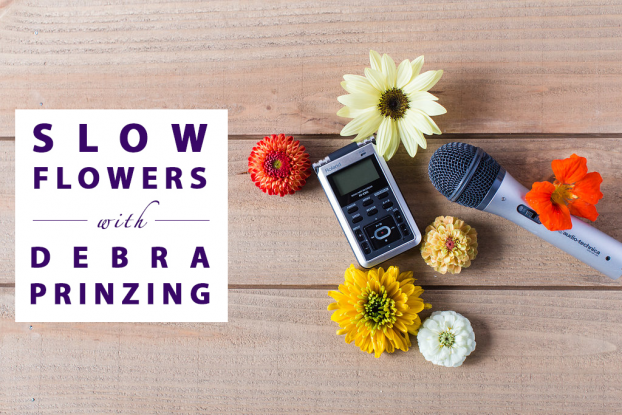
Thanks so much for joining us today! The Slow Flowers Podcast has been downloaded more than 780,000 times by listeners like you. Thank you for listening, commenting and sharing – it means so much. As our movement gains more supporters and more passionate participants who believe in the importance of our domestic cut flower industry, the momentum is contagious. I know you feel it, too.
We are a member-supported endeavor and I value our loyal members and supporters! If you’re new to this podcast, check out all of our resources at Slow Flowers Society.com and consider making a donation to sustain Slow Flowers’ ongoing advocacy, education and outreach activities. You can find the donate button in the column to the right at debraprinzing.com
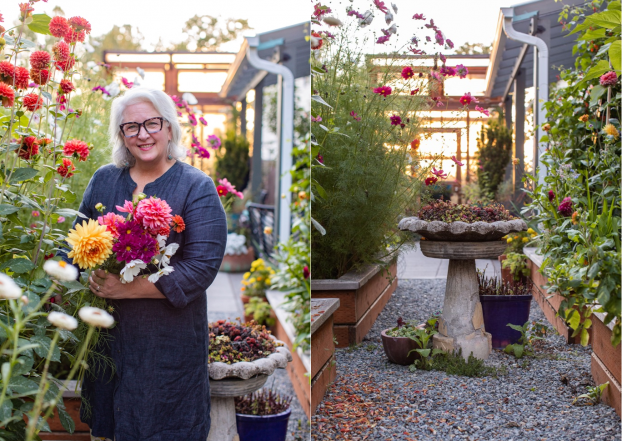
I’m Debra Prinzing, host and producer of the Slow Flowers Show & Podcast. Next week, you’re invited to join me in putting more Slow Flowers on the table, one stem, one vase at a time. The content and opinions expressed here are either mine alone or those of my guests alone, independent of any podcast sponsor or other person, company or organization.
The Slow Flowers Podcast is engineered and edited by Andrew Brenlan. You can learn more about Andrew’s work at soundbodymovement.com.
Music Credits:
For We Shall Know Speed; Hickory Interlude; Turning on the Lights; Gaena
by Blue Dot Sessions
http://www.sessions.blue
Lovely
by Tryad
http://tryad.bandcamp.com/album/instrumentals
http://creativecommons.org/licenses/by-sa/3.0/
In The Field
audionautix.com









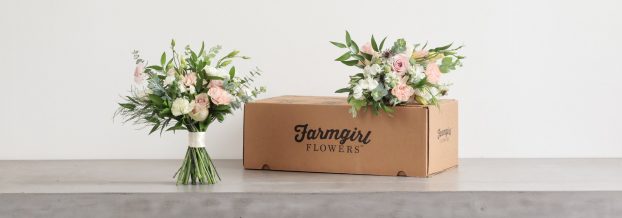
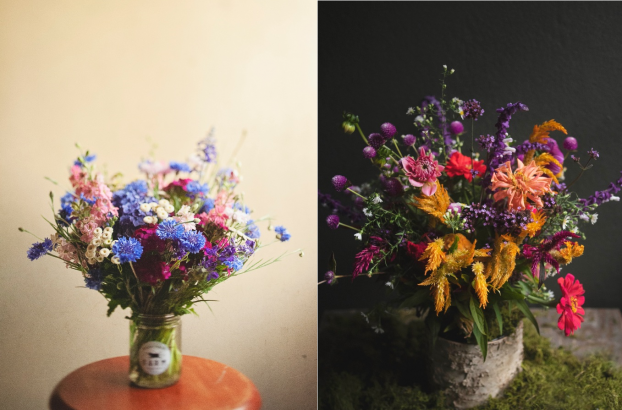
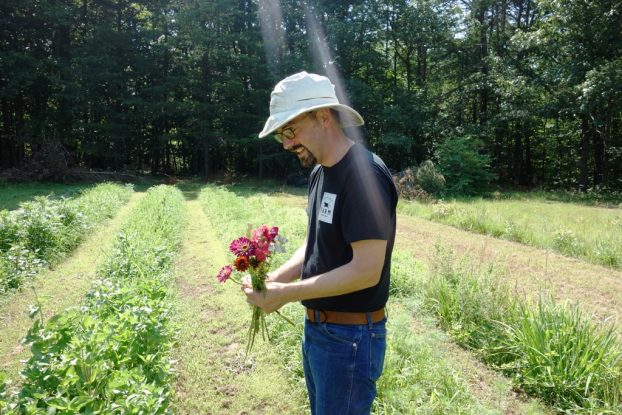
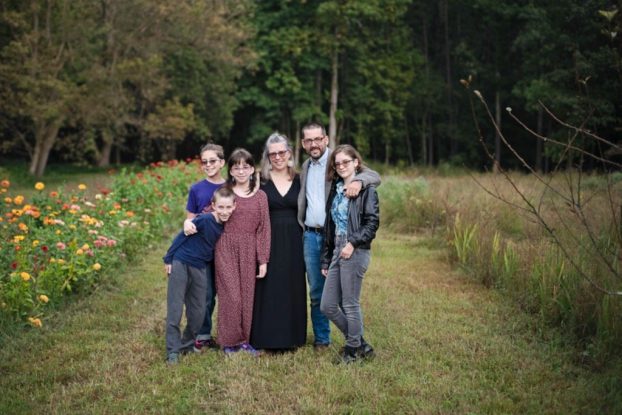
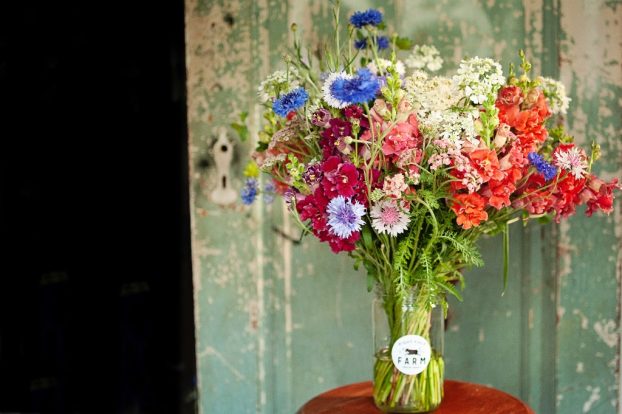
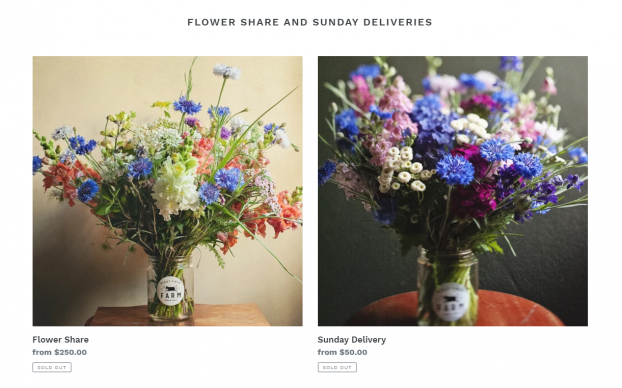
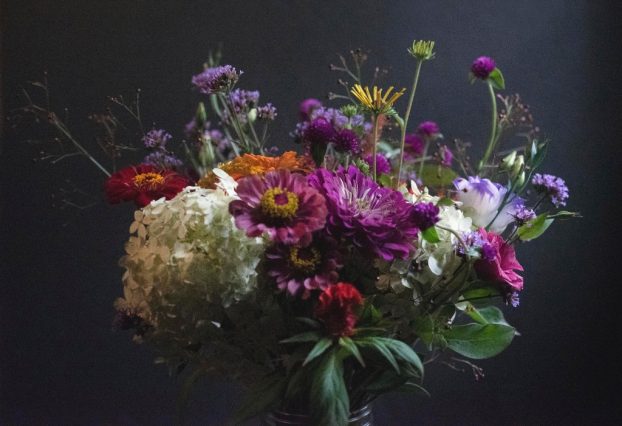
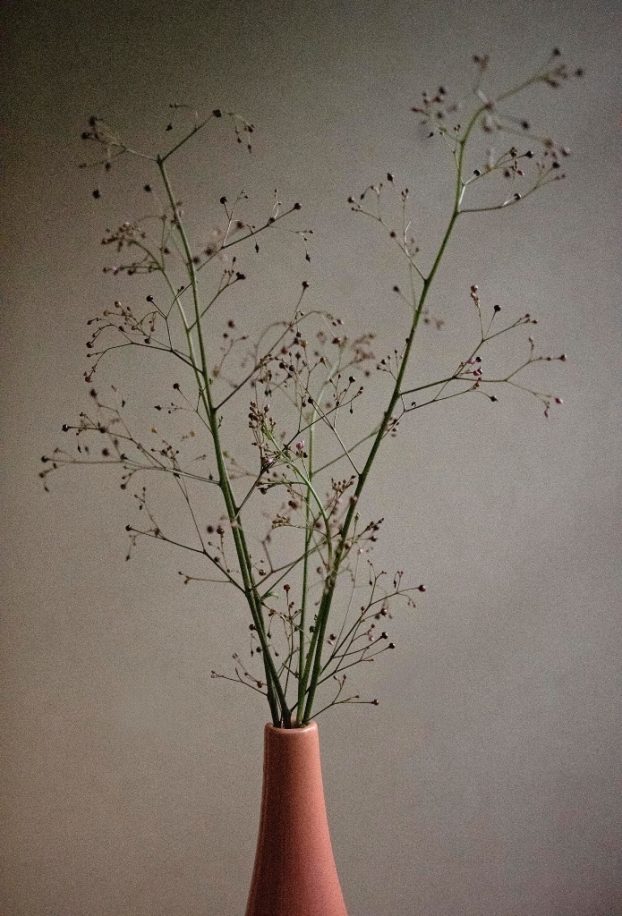
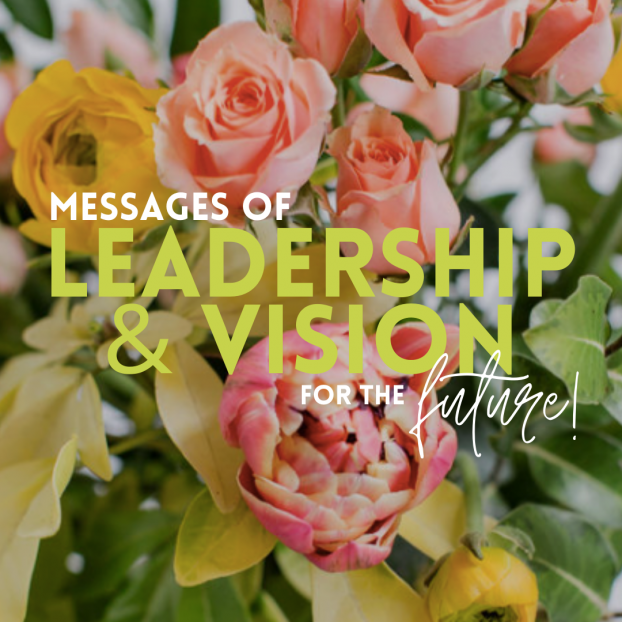
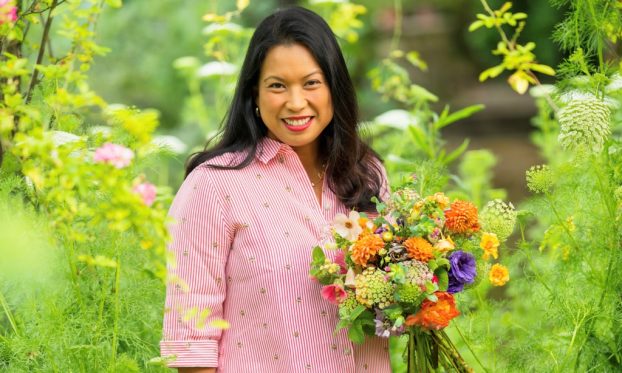
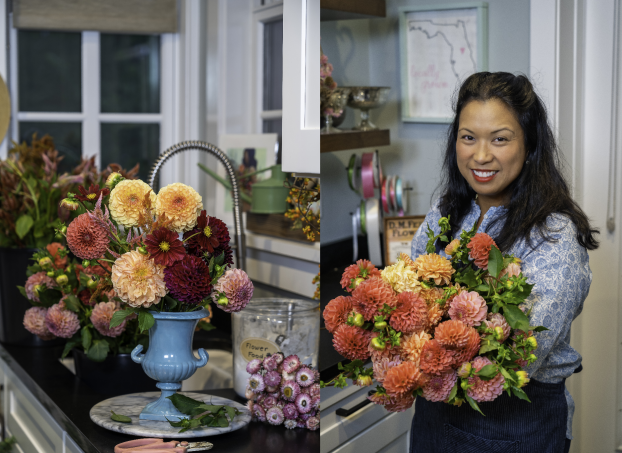
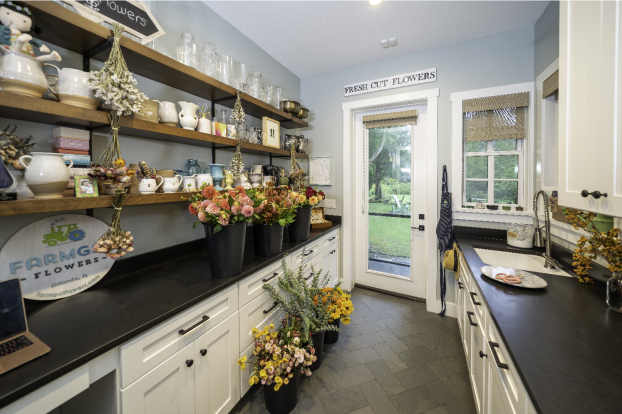
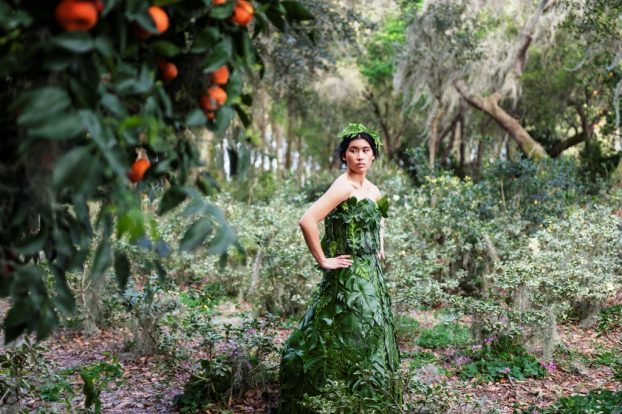
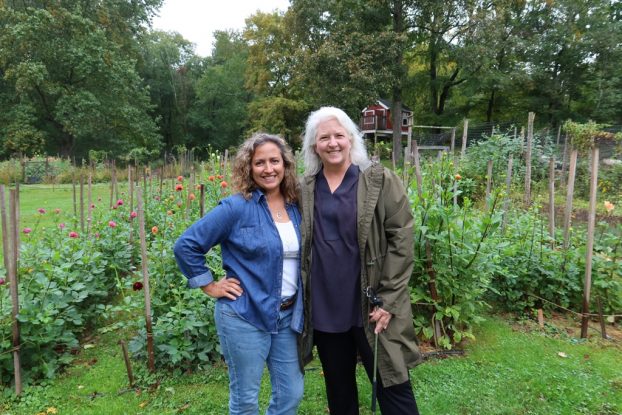
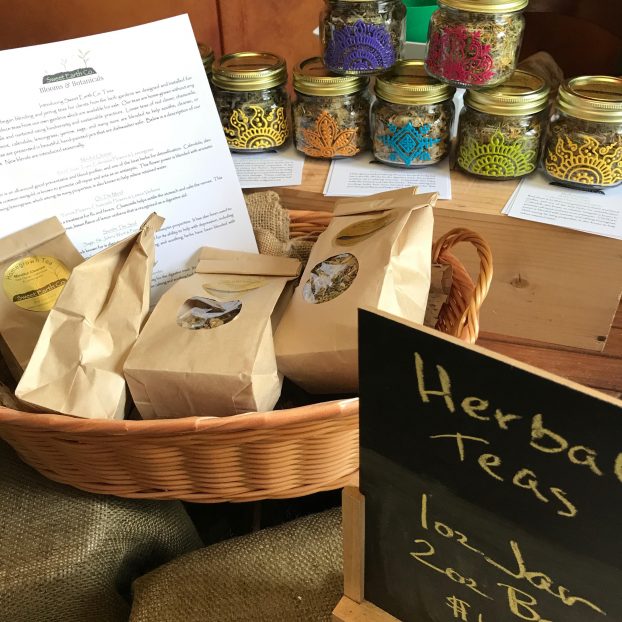
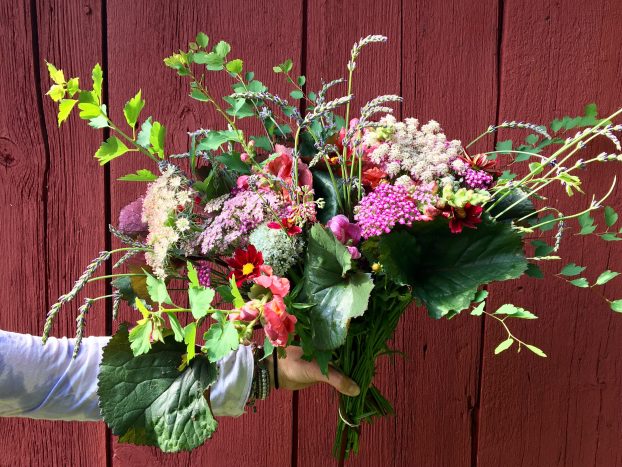
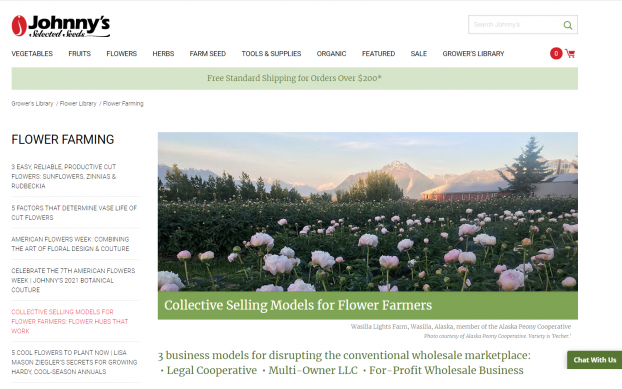
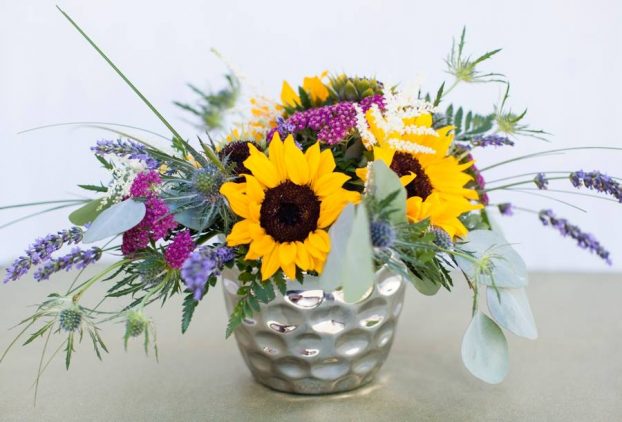
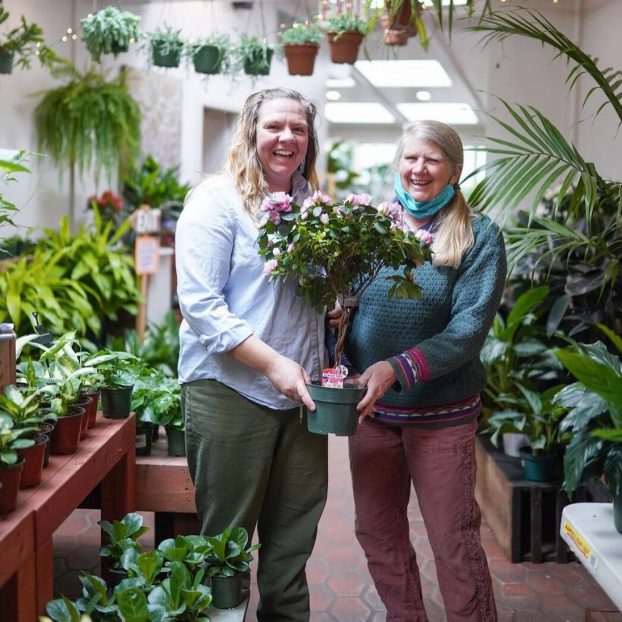
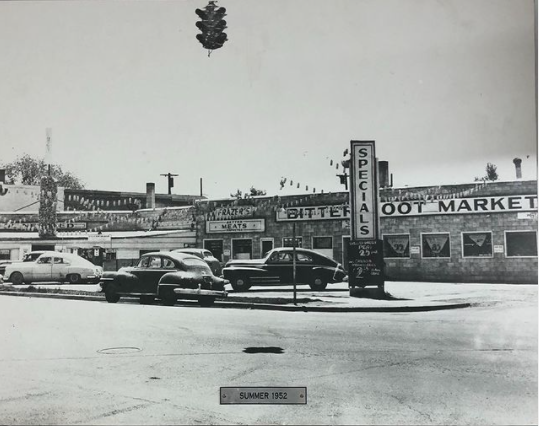
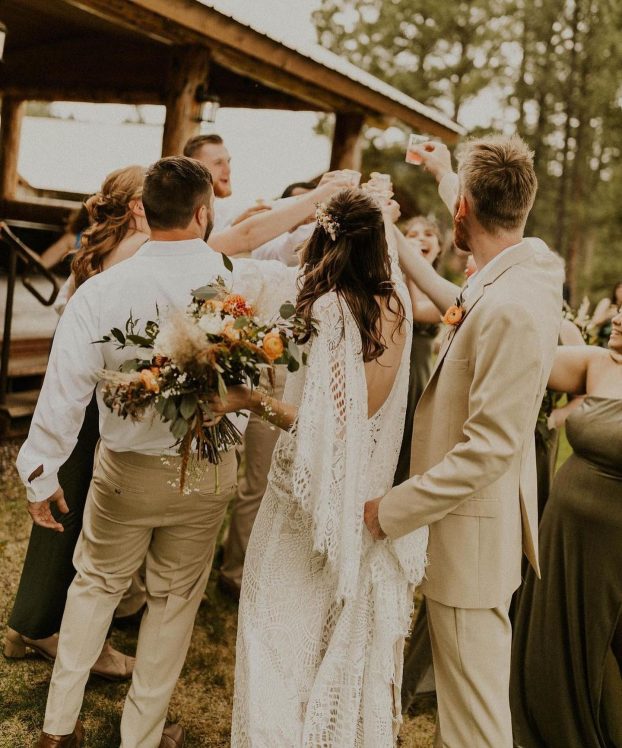
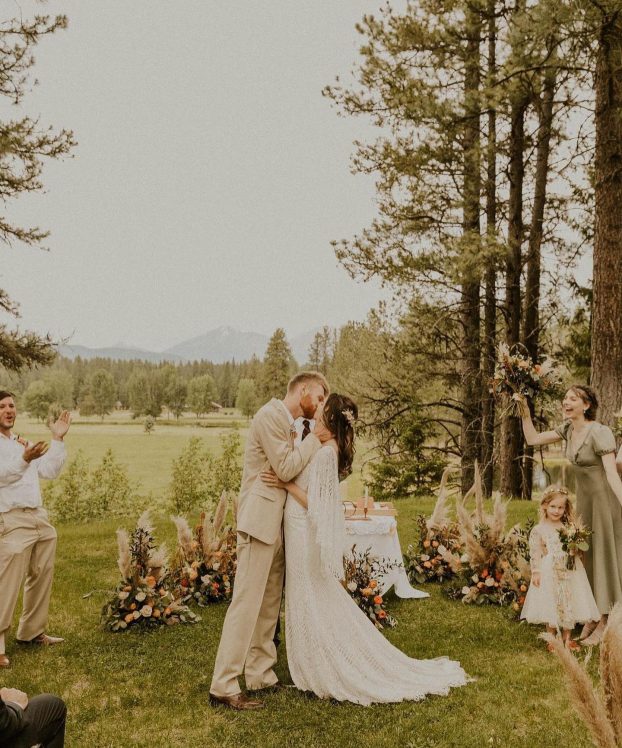
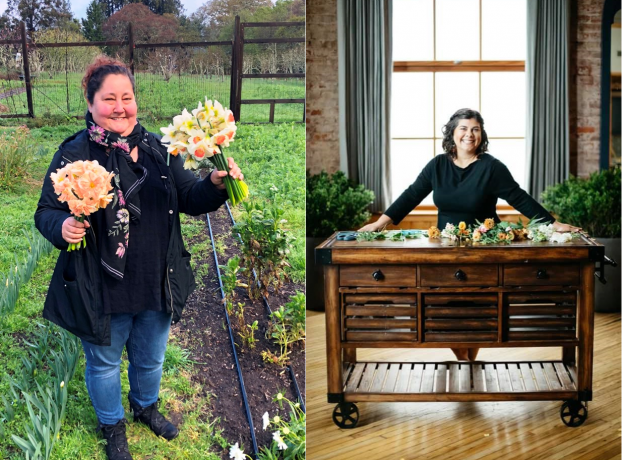
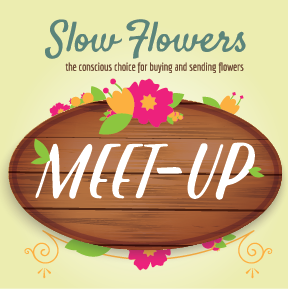 As I mentioned last week, October is Slow Flowers Member Appreciation Month! We have lots planned each day of this month to connect with you and others in our community. This Friday, be sure to join our Member Virtual Meet-Up — and hear from two members, retail florists who will share their marketing and branding tips to leverage the Slow Flowers message to their customers.
As I mentioned last week, October is Slow Flowers Member Appreciation Month! We have lots planned each day of this month to connect with you and others in our community. This Friday, be sure to join our Member Virtual Meet-Up — and hear from two members, retail florists who will share their marketing and branding tips to leverage the Slow Flowers message to their customers.